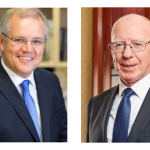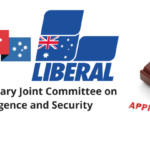Should both parents be charged if a baby is shaken to death?

Parents who shake or otherwise fatally injure their children could be convicted even when it isn’t clear which parent is responsible under suggested changes to the law prompted by the violent and tragic death of a baby boy in NSW.
Findings of the inquest into the baby’s death
NSW Deputy State Coroner Elaine Truscott has recommended changes to ambulance and police procedures, and the introduction of a new offence, after finding earlier this month that a violent incident caused the death of the baby boy in 2009.
The baby died after sustaining fatal injuries, which coroner Truscott said were likely due to being violently shaken and grabbed.
According to the report, although both parents denied shaking the baby, they gave inconsistent statements, which police say made it impossible to determine which of them was responsible for the child’s death and led to neither of them being charged.
As a result of this case, Truscott has suggested that the NSW Government consider introducing a new offence of cruelty contributing to death, which could be used when it is not clear which parent has caused the death of a child. Her report also detailed suggested changes to the way that emergency services handle cases of injuries caused to children.
The report identified a time lapse of 12 hours from when an x-ray revealed that the baby had sustained multiple fractures, and the notification of police and community services about his suspicious death. It was suggested that if police had been able to take thorough and detailed statements at the time, or if they had been able to collect evidence at the scene, it would have been more apparent which parent was responsible, and a conviction would have been more likely.
As a result, the coroner recommended that whenever paramedics are sent to resuscitate a child, police should be called to the scene automatically.
NSW Attorney General Brad Hazzard is considering the recommendation to establish a new offence, calling the deliberate injuring of a child an “extremely serious” matter. He is planning to take advice on the proposed changes, as there are a number of complex issues involved.
Previous calls for changes to the law
This is not the first time parents have avoided being charged after allegedly shaking a baby to death, or the first time that coroners have called for changes to the law in this area.
In 2013, Deputy State Coroner Paul MacMahon found the cause of a four-week-old baby boy’s death in 2009 to be a head injury from being shaken forcefully, and made recommendations for a new offence.
The parents in that case also denied shaking their baby, and charges were not pressed as there was insufficient evidence to determine which parent was responsible for the violence. In his report, coroner MacMahon recommended that the attorney general create a new criminal offence in NSW that would protect babies and children, similar to domestic violence laws in the UK.
The proposed legislation would be used in situations where more than one person in a closed group of people were accused of deliberately harming a child seriously and the evidence wasn’t sufficient to determine who out of the group was responsible. Under this legislation, all the members of the group would be charged.
How criminally liable are carers in the event of non-accidental death?
Last year, the NSW Parliament published a research paper on the criminal liability of carers in the event of the non-accidental death of children. The extent of the problem in NSW is not clear, as previous studies have only focused on prosecutions, and not cases where prosecution did not take place.
The data available indicates that under half the people who allegedly inflict head injuries on children end up being charged with criminal offences. In the vast majority of cases, parents are charged after confessing to deliberately injuring their children. The research identified that in cases of non-accidental head injuries, families often refuse to say who is responsible, or in some cases, the parents blame each other.
Currently, if there is insufficient evidence against one parent, or the person responsible can’t be determined, the matter won’t normally proceed any further. In the UK, laws have been implemented to enable both parties to be charged in those circumstance and face up to 14 years’ imprisonment.
Concerns with implementing these types of laws
Unfortunately, if the laws are changed it could lead to innocent parents being prosecuted for child abuse.
Abuse can take place while one carer is out of the room, or asleep, and charging both parents in these cases can lead to penalisation of the innocent.
In the UK, concerns have also been raised by the Bar Association and criminal defence lawyers that the legislation has the potential to deprive the defendant of a fair trial as it takes away the requirement to prove beyond a reasonable doubt that the individual who is being penalised actually inflicted the injury, or at least acted in concert with the perpetrator.
Other concerns include situations involving domestic violence where one parent may have failed in their duty to protect their child out of fear for their safety, financial abuse or emotional abuse.
It has been suggested that prosecuting women for failing to protect a child from a violent male partner could be further penalising the already vulnerable, or even making the mother responsible for a lack of support or protection from the government and social services.
Non-accidental deaths and injuries towards children and babies are undoubtedly serious matters, but the issues are more complex than penalising both parents when there isn’t enough evidence to charge one of them.






